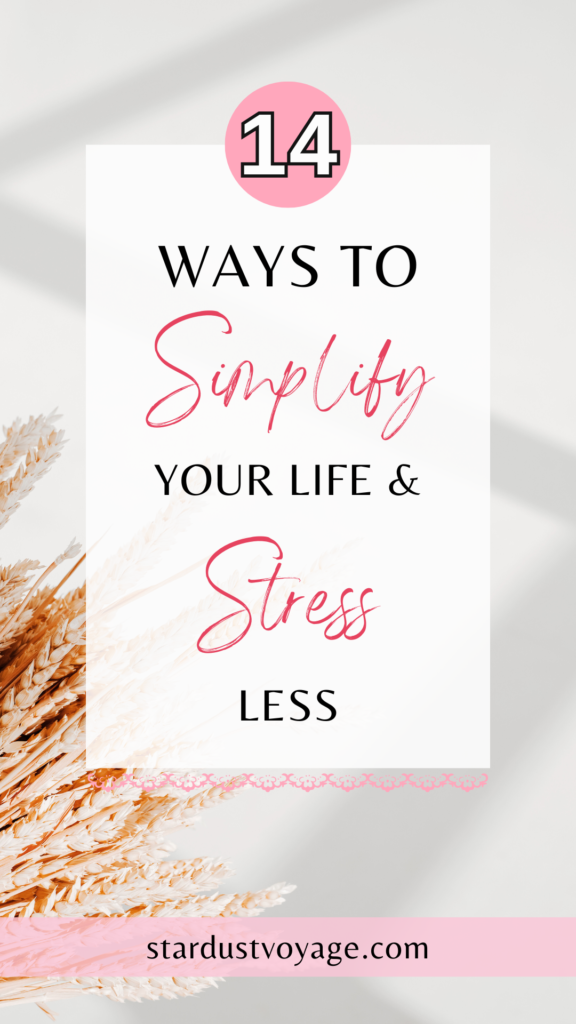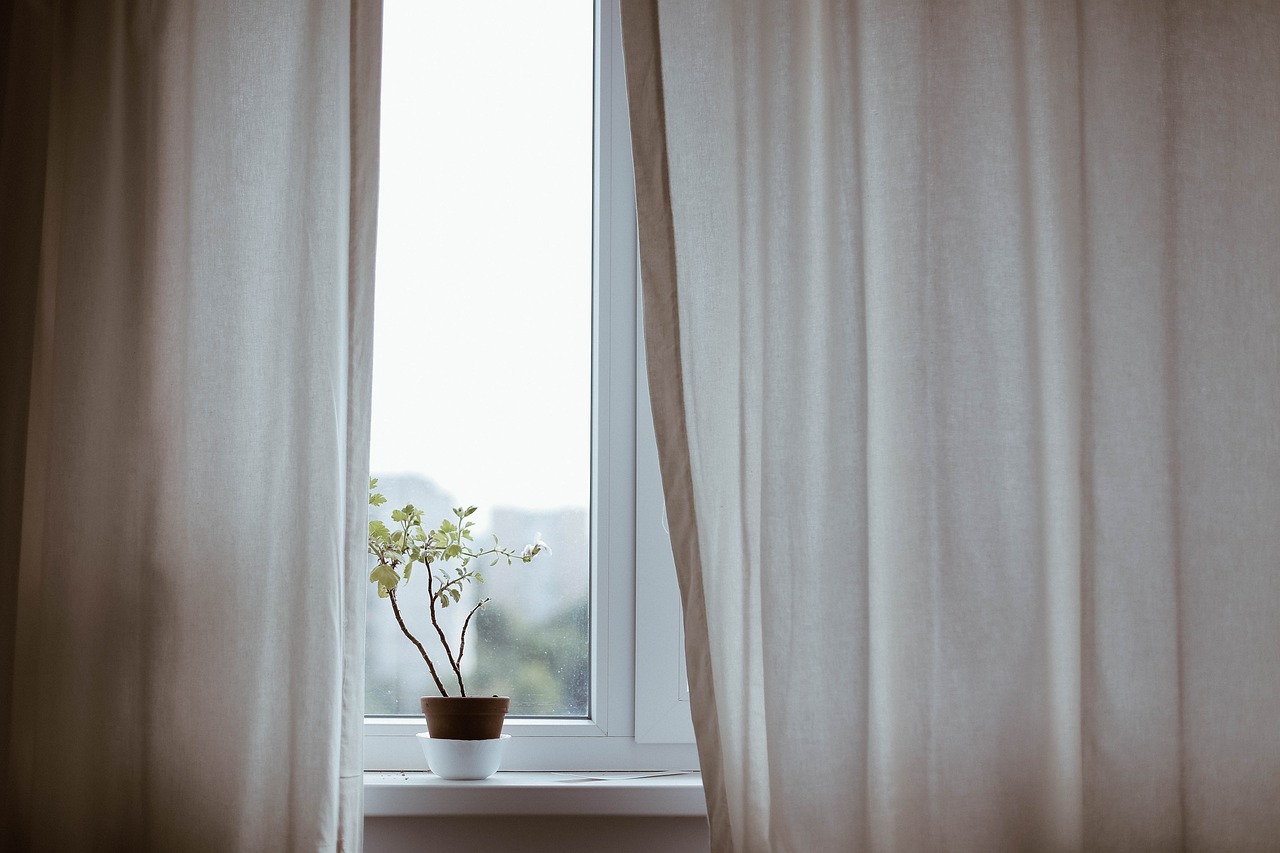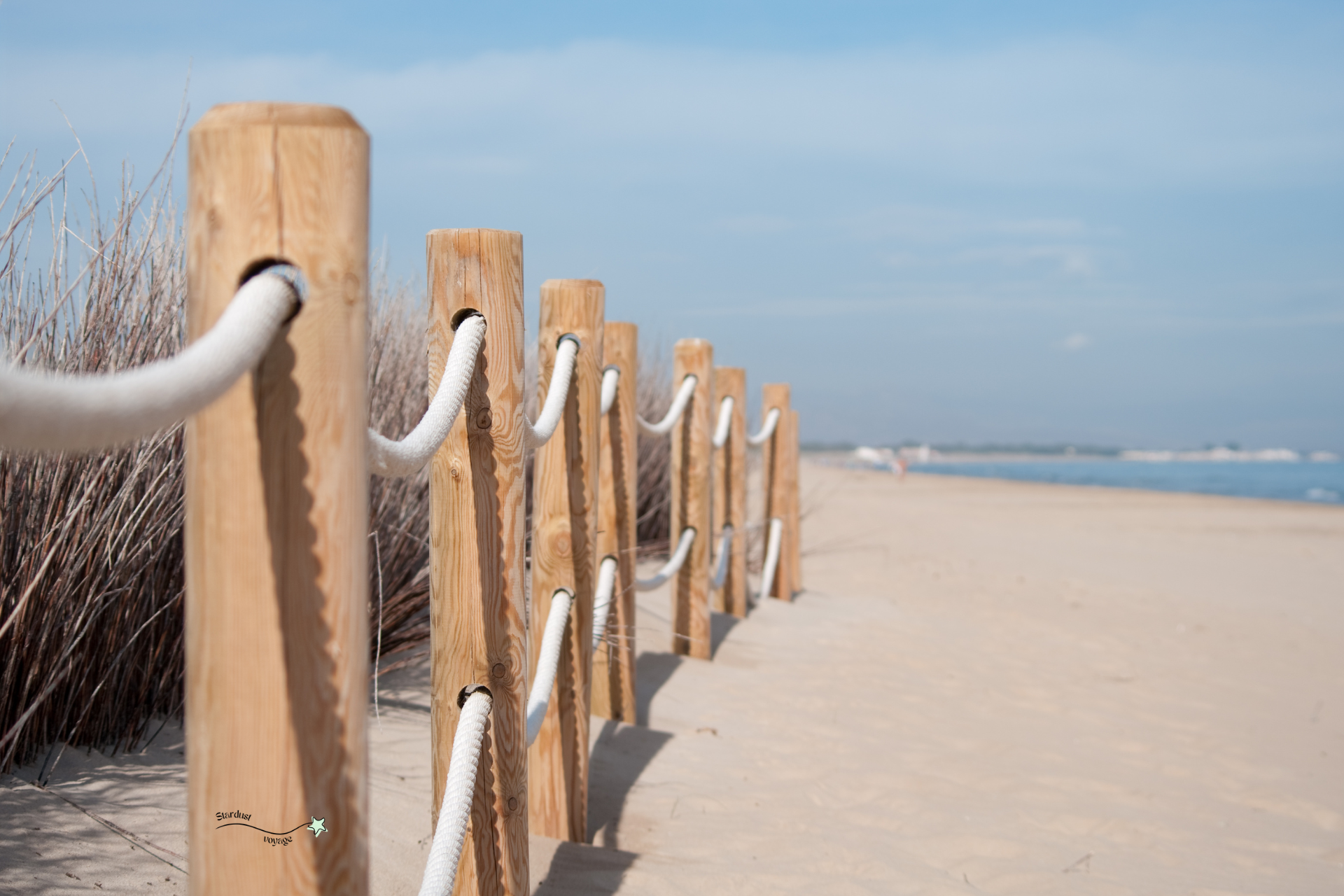In the whirlwind of modern life, where every minute feels like a race against time, the art of simplicity often gets lost. Women, in particular, bear the weight of countless roles—caregiver, professional, friend, and homemaker. It can be overwhelming, and the clutter—both physical and mental—seems to multiply. “Simplicity is the ultimate sophistication,” Leonardo da Vinci once said, encapsulating the transformative power of minimalism. Imagine waking up each day feeling light and free, surrounded only by what truly matters.
Minimalism isn’t just about decluttering your space; it’s a lifestyle choice that encourages intentional living. It’s about creating room for what nurtures your spirit and letting go of what weighs you down. By embracing a minimalist mindset, you can strip away the excess and focus on what truly enriches your life.
Throughout this blog post, we’ll explore 15 simple strategies designed specifically for women who seek to simplify their routines and reduce stress. Each strategy is rooted in the idea that less can indeed be more. As we journey together, I’ll share personal anecdotes and insights that have shaped my understanding of minimalism, offering you practical tips and heartfelt encouragement along the way.
Let’s embark on this path toward a more mindful, fulfilling life. Together, we’ll discover how embracing simplicity can illuminate our daily routines, making way for joy, peace, and a deeper connection to ourselves and the world around us.

- 1. Declutter Your Space
- 2. Mindful Consumption
- 3. Streamlining Daily Routines
- 4. Digital Detox
- 5. Minimalist Mindset
- 6. Simplified Meal Planning
- 7. Creating a Zen Space
- 8. Time Management Tips
- 9. Self-Care Essential
- 10. Building Meaningful Connections
- 11. Financial Minimalism
- 12. Embracing Imperfection
- 13. Mindful Hobbies
- 14. Gratitude Practices
- Conclusion: Adjust and Adapt
1. Declutter Your Space
Decluttering your space is like taking off a heavy coat; it instantly makes you feel lighter. I remember the first time I tackled my closet, pulling out clothes I hadn’t worn in ages. As I sorted through my belongings, I felt a weight lift off my shoulders. Start small—go room by room and ask yourself: Do I use this? Do I love it? If the answer is no, it might be time to let it go. Donating or selling things you don’t need creates more room and brings mental clarity as your space becomes tidier.
Don’t forget about your digital clutter! Taking the time to sort through these digital spaces transformed my daily routine. Organize your files, delete old documents, and unsubscribe from unwanted emails. A clean digital environment can reduce stress and make your life feel more manageable.
Finally, think of decluttering as an ongoing journey. Regularly assessing your belongings keeps your space tidy and helps you be mindful of what you bring into your life. Each time you let go of something unnecessary, you’ll feel lighter and more focused. A decluttered space can be a breath of fresh air, allowing you to focus on what truly matters and make room for new experiences that enrich your life.
2. Mindful Consumption
Mindful consumption is about making intentional choices that align with your values and lifestyle. I used to buy clothes on impulse, thinking a new outfit would make me feel better. But over time, I realized that many of those pieces sat unworn in my closet. Now, I focus on quality over quantity. When I shop, I ask myself if the item truly fits my style and if I can see myself wearing it multiple times. For example, a pair of nude shoes can effortlessly go with various outfits, from casual jeans to elegant dresses, whereas a bold red pair might only complement certain looks. This shift reduces clutter and saves me money in the long run.
Creating a capsule wardrobe has been a game-changer for me. I curate a selection of versatile pieces that can be mixed and matched, allowing me to feel stylish without excess. It feels good to open my closet and see only items I love and wear regularly. Similarly, consider simplifying your beauty routine. Choose a few high-quality products that work well for your skin and hair. This way, you’ll save time and money while still feeling confident in your appearance.
Mindful consumption extends beyond clothing and beauty products; it applies to everything we bring into our lives. Before making a purchase, ask yourself if it adds value or joy to your life. By being more deliberate about what we consume, we can cultivate a lifestyle that feels lighter and more fulfilling, paving the way for deeper connections with what truly matters.
3. Streamlining Daily Routines
Streamlining your daily routines can transform your mornings and evenings from chaotic to calm. I used to start my day in a rush, feeling overwhelmed by the endless to-do list. But I discovered that small adjustments could make a world of difference. One of my favorite hacks is meal prepping for the week. On Sundays, I take some time to prepare simple, healthy meals that I can grab on busy mornings. This saves time and eliminates the stress of figuring out what to eat.
In the mornings, I’ve simplified my skincare routine to just a few essential products. I used to have a cabinet full of creams and serums that I felt obligated to use, but now I stick to what truly works for me. This way, I can get ready in half the time and feel refreshed without the clutter.
In the evenings, I unwind by creating a calming bedtime ritual. Instead of scrolling through my phone, I take a moment to reflect on my day and practice gratitude. This helps me transition into a more peaceful mindset before sleep. This way, I’ve found a greater sense of control and balance in my life, leaving room for the things that truly matter.

4. Digital Detox
In our tech-saturated world, a digital detox can be a breath of fresh air. I realized that my constant scrolling through social media was draining my energy and focus. So, I decided to declutter my digital space, and it was a game changer. Start by evaluating the apps on your phone and the accounts you follow. Ask yourself if they bring joy or just add noise to your life.
Set boundaries for screen time, too. Designate specific hours for checking emails or social media rather than allowing it to seep into every moment. Therefore, I found myself more present and engaged in my daily life. A digital detox not only simplifies your online world but also opens up time for real-life connections and activities that bring you joy.
5. Minimalist Mindset
Adopting a minimalist mindset is about more than just physical decluttering; it’s a profound shift in how we think and feel. I often found myself bogged down by negative thoughts and the pressures of modern life. Embracing minimalism taught me to practice gratitude and mindfulness, which helped clear away that mental clutter.
Start your day with a few moments of reflection. I like to take a few deep breaths and jot down three things I’m grateful for. This simple act shifts my focus away from stressors and towards the positive aspects of my life. It’s amazing how this practice can brighten even the gloomiest of days.
Letting go of the need for perfection is another key aspect of a minimalist mindset. We all strive to do our best, but chasing perfection can lead to frustration and burnout. Instead, I remind myself that progress is what truly matters. Embracing imperfection allows me to celebrate my achievements, no matter how small, and fosters a sense of peace.
6. Simplified Meal Planning
Meal planning doesn’t have to be a complex chore; in fact, it can be a lifesaver for those embracing a minimalist lifestyle. I’ve discovered that keeping meals simple not only saves time but also reduces stress in the kitchen. With fewer ingredients and less fuss, cooking becomes an enjoyable part of my day.
You can begin by choosing a few go-to meals that you love. For instance, I often rely on versatile dishes like stir-fries or grain bowls. These can be easily adapted with whatever vegetables or proteins I have on hand. By focusing on a few simple recipes, I spend less time worrying about what to cook and more time enjoying my meals.
Another great tip is to meal prep in batches. On Sundays, I set aside an hour to chop vegetables, cook grains, and portion out meals for the week. This makes it easy to grab something healthy on busy days. Plus, having prepared meals in the fridge feels like having a safety net—no more scrambling at dinner time!
Lastly, don’t hesitate to simplify your grocery list. I like to stick to the basics: fruits, vegetables, proteins, and whole grains. This not only keeps my shopping trips quick and efficient but also minimizes food waste.
7. Creating a Zen Space
Transforming your home into a calming sanctuary doesn’t have to be complicated. A few thoughtful changes can create a peaceful atmosphere that promotes relaxation and reduces stress. The goal is to cultivate a space where you feel safe and centered, away from the chaos of everyday life.
After decluttering your space, you can then incorporate calming colors and natural elements to enhance your Zen space. I love using soft earth tones and gentle pastels in my décor; they evoke a sense of tranquility. Adding plants, like a small succulent or a vibrant fern, can bring life into your home, improve air quality, and create a connection to nature.
Finally, dedicate a specific area for relaxation. Whether it’s a cozy reading nook with soft blankets or a small meditation corner, having a designated spot helps you unwind. I often use this space for journaling or enjoying a cup of tea, making it a cherished retreat in my home.
8. Time Management Tips
Managing your time effectively can simplify your life. It’s all about prioritizing what matters most and creating space for relaxation. I’ve found that being organized means more than just filling the planner; it’s about finding a system that suits you.
The first step is making a list of important tasks each week. I like to do this on Sunday evenings. It gives me a clear focus for the week ahead and keeps me from feeling overwhelmed. Breaking larger tasks into smaller steps can make them easier to handle and give you a nice sense of achievement as you tick them off.
Setting specific time blocks for different activities also helps. Whether it’s work, chores, or self-care, scheduling time ensures you’re fully present in each moment. I usually block out a couple of hours for uninterrupted work, which keeps distractions at bay.
And don’t forget to include breaks in your schedule! I sometimes overlook them, but a quick walk or a few minutes of stretching can refresh your mind. These short pauses help boost your focus and energy, making time management a powerful tool for living a simpler, less stressful life.
9. Self-Care Essential
In a minimalist lifestyle, self-care is not just a luxury; it’s essential for your well-being. I’ve learned that taking time for myself is crucial, especially in a world that often demands so much from us. Simple self-care practices can recharge your spirit without overwhelming your schedule.
You can start with small, daily rituals that bring you joy. Whether it’s enjoying a cup of herbal tea in the morning or taking a few minutes to read a book, these moments can ground you and set a positive tone for your day. I love incorporating a short skincare routine; it’s not just about looking good but also about feeling good in my skin.
Another wonderful practice is to create a self-care kit. Fill it with items that bring you comfort, like your favorite scented candle, a cozy blanket, or a journal. Having this kit ready allows you to take quick breaks whenever you need a moment to unwind.
Finally, don’t hesitate to say no to things that drain your energy. Prioritizing your time and energy can transform your self-care routine from a chore into a refreshing escape. Embracing self-care as an essential part of your life can help you cultivate a more balanced and fulfilling existence.
10. Building Meaningful Connections
In a world full of social media and endless notifications, it’s easy to lose sight of what truly matters: genuine relationships. Instead of striving for a large circle of acquaintances, focus on nurturing a few close connections. Quality over quantity can lead to deeper, more fulfilling friendships.
Take time to reach out to those who uplift and inspire you. Schedule regular catch-ups, whether it’s a coffee date or a simple phone call. I’ve found that dedicating time to meaningful conversations not only strengthens bonds but also brings joy to my days.
Engaging in shared activities can also deepen these connections. Consider joining a book club or a local class where you can meet like-minded individuals. Surrounding yourself with people who share your passions can create a supportive network that enhances your minimalist lifestyle.
11. Financial Minimalism
Simplifying your finances is a powerful step toward a more stress-free life. Financial minimalism isn’t just about saving money; it’s about being intentional with your spending. Start by reviewing your expenses. Identify what truly adds value to your life and what can be cut.
Creating a simple budget can make a world of difference. I’ve found that having a clear overview of my finances helps me prioritize what matters most. It’s not about denying yourself pleasures; it’s about choosing them wisely. For example, instead of buying coffee every day, I might treat myself to a special café outing once a week. This not only saves money but also makes the experience more enjoyable.
Consider automating your bills and savings. This eliminates the mental load of remembering due dates and allows you to focus on your priorities. Embracing financial minimalism means reducing clutter in your financial life, leading to peace of mind and clarity.
12. Embracing Imperfection
Embracing imperfection can feel revolutionary. This mindset shift is essential for a minimalist lifestyle. Perfectionism can be paralyzing, leading to stress and dissatisfaction. Instead, focus on progress over perfection.
I’ve learned to appreciate the beauty in flaws—whether it’s a slightly uneven DIY project or a meal that didn’t turn out as planned. These moments remind me that life is about experiences, not achievements. When I let go of the need for everything to be “just right,” I create space for creativity and spontaneity.
Remember, it’s okay to have off days or imperfect routines. They are part of the journey. It allows you to be kinder to yourself. Celebrate small wins and recognize that every step forward is valuable, even if it’s not perfect.
Ultimately, living with a mindset of acceptance frees you from the weight of unrealistic expectations. When you embrace imperfection, you open the door to genuine joy and fulfillment in your everyday life.
13. Mindful Hobbies
Incorporating mindful hobbies into your routine can significantly enhance your well-being. These activities encourage you to slow down and immerse yourself in the present moment. Think about hobbies like gardening, journaling, or crafting. Each offers a chance to express creativity while providing a calming escape from daily stressors.
For me, journaling has been a game-changer. It allows me to process my thoughts and feelings without judgment. As I write, I find clarity and peace, which can be hard to achieve amidst a busy lifestyle. Crafting, too, invites me to focus on the joy of creating rather than the result. Whether it’s knitting a scarf or painting a canvas, the act itself is therapeutic.
Engaging in these hobbies doesn’t have to take hours; even 15 minutes of focused activity can do wonders for your mind. The key is to choose hobbies that resonate with you and promote relaxation. Make time for them in your week, and you’ll discover the benefits of being present in the moment while embracing the simplicity that minimalism brings.
14. Gratitude Practices
Practicing gratitude can transform your mindset and help reduce stress. One simple way to do this is by keeping a gratitude journal. Every evening, I write down three things I’m thankful for, no matter how small. This helps me focus on the positives in my life, especially on tougher days.
Another great practice is to express gratitude to others. Sending a quick text or note to thank a friend or loved one can brighten both of your days. I’ve noticed that acknowledging the people who support me helps strengthen my connections and creates a sense of community.
You might also try starting a gratitude jar. Write down things you’re grateful for on slips of paper and place them in the jar. Over time, this jar will fill with reminders of joy in your life. Looking back at these notes during difficult moments can be uplifting. Embracing gratitude can truly enhance your minimalist lifestyle and bring more positivity into your daily routine.
Conclusion: Adjust and Adapt
Embracing a minimalist lifestyle is a journey, not a destination. It invites us to prioritize what truly matters, shedding the unnecessary clutter—both physical and emotional—that can weigh us down. As I’ve navigated this path, I’ve discovered that simplicity brings clarity, allowing space for joy, connection, and self-care.
Incorporating these strategies into your life doesn’t have to be overwhelming. Start small; even tiny changes can lead to significant shifts. Perhaps begin with decluttering a single drawer or practicing gratitude at the end of each day. Remember, this is about progress, not perfection.
I encourage you to tailor these strategies to fit your unique life and needs. Minimalism is personal, and what works for one person might not resonate with another. Stay open, be flexible, and enjoy the process of discovering what simplicity means for you. Here’s to living a life filled with purpose, peace, and a little more room to breathe!




